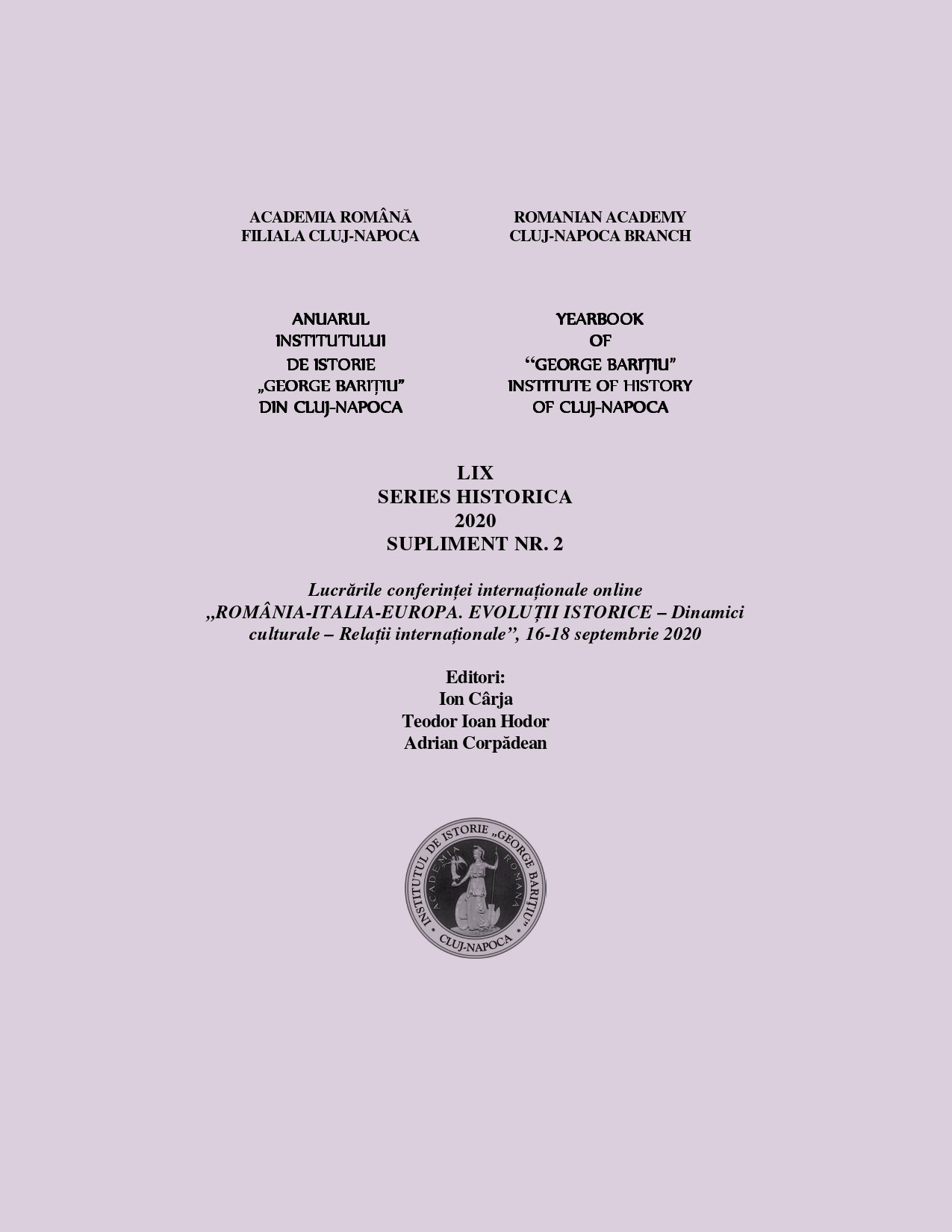Alianțe și conflicte ale Grecilor cu autoritățile locale și comunitățile de ortodocși în contextul ridicării bisericilor grecești din Transilvania
Greek alliances and conflicts with local authorities and orthodox communities in the context of building the Greek churches in Transylvania
Author(s): Bogdan E. AnagnastopolSubject(s): Local History / Microhistory, Eastern Orthodoxy
Published by: Editura Academiei Române
Keywords: Greek merchants; Greek churches; Transylvania; Greek conflicts; Greek presence; Orthodox alliances;
Summary/Abstract: In Transylvania, starting with the last decades of the Byzantine Empire, the presence of Greek merchants, who sold oriental goods inside the European continent, became a link between East and West. The collaboration of these merchants in the form of trading companies was achieved gradually, first in Sibiu (1636) and then in Brașov (1678). Ethnically, the merchants were known as „Greeks” originated from Greece and Macedonia; after the Company reorganization between 1770-1791, when were accepted all merchants coming from the Ottoman Empire, the term „Greek” changed, meaning a person following Christian Orthodox religion. The role of the church in the intellectual and cultural life of the Greek Companies in Transylvania was fundamental, the presence of the church being active since the Companies foundation. Separated from the Greek churches in Brașov and Sibiu, greeks helped the construction of new churches in Cluj, Alba Iulia, and Oradea. Through their association with the Greek communities that supported the construction of these churches, the local collective mental continued to call them the Greek church. The Greek church life in Transylvania between the 18th and 19th centuries was not easy, given the political and religious context. The Austrian authorities considered the activities of the priests in the Greek churches a danger because they pursued a policy contrary to Austrian interests, the unfavourable context being accentuated by the anti-Orthodox spirit of the Catholics. The conflicts affected the presence of the Greek churches in Brașov and Sibiu, and in the case of Brașov, the conflict involved local authorities, Greek members of the Greek Company, Greeks non-members of the Company, and the Orthodox community.
Journal: Anuarul Institutului de Istorie »George Bariţiu« - Series HISTORICA - Supliment
- Issue Year: LIX/2020
- Issue No: LIX, 2
- Page Range: 309-317
- Page Count: 9
- Language: English

